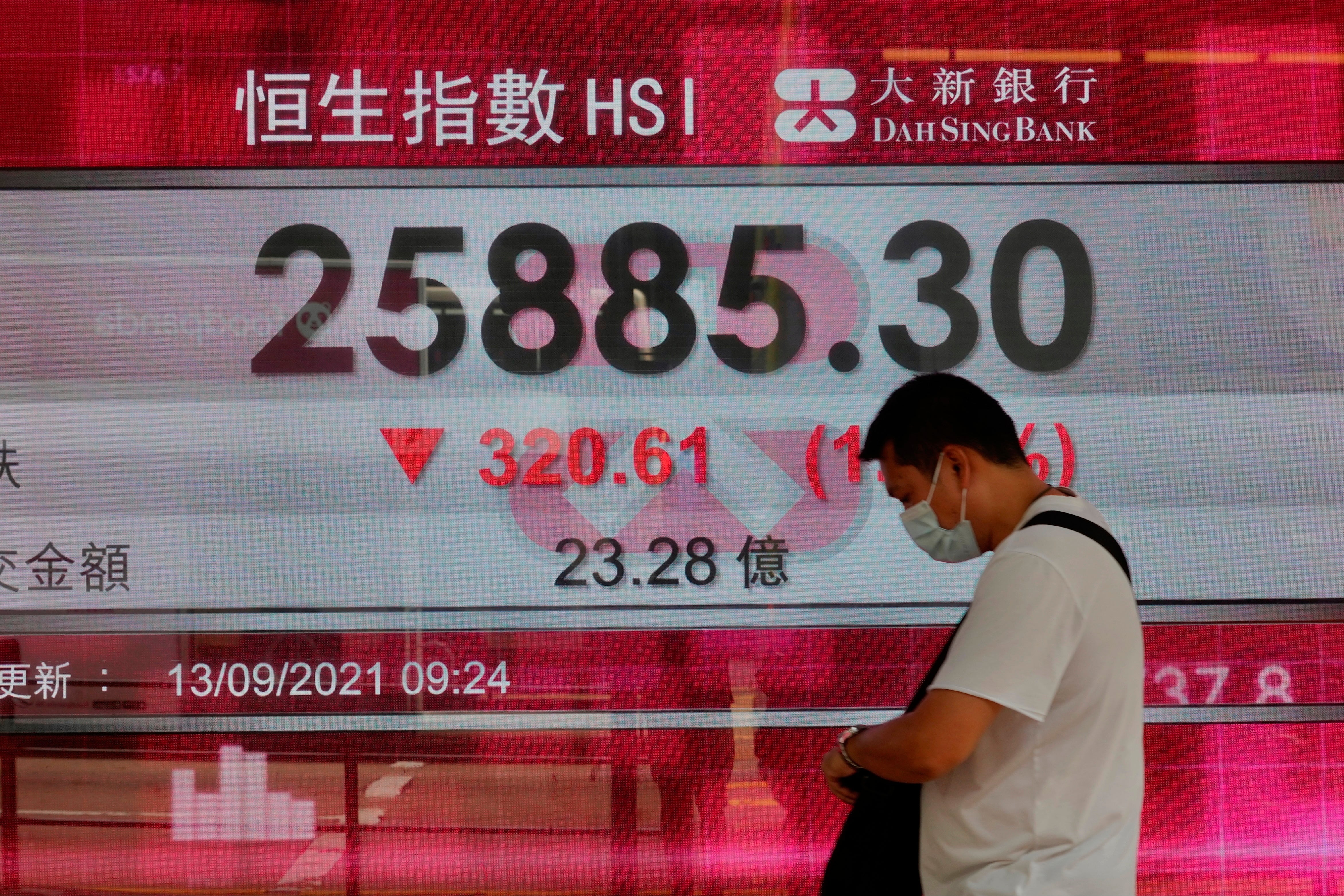Asian shares trend lower after Wall St ends with weekly loss
Shares are lower in most Asian markets after Wall Street benchmarks ended last week with a decline

Your support helps us to tell the story
From reproductive rights to climate change to Big Tech, The Independent is on the ground when the story is developing. Whether it's investigating the financials of Elon Musk's pro-Trump PAC or producing our latest documentary, 'The A Word', which shines a light on the American women fighting for reproductive rights, we know how important it is to parse out the facts from the messaging.
At such a critical moment in US history, we need reporters on the ground. Your donation allows us to keep sending journalists to speak to both sides of the story.
The Independent is trusted by Americans across the entire political spectrum. And unlike many other quality news outlets, we choose not to lock Americans out of our reporting and analysis with paywalls. We believe quality journalism should be available to everyone, paid for by those who can afford it.
Your support makes all the difference.Shares slipped Monday in most Asian markets after Wall Street benchmarks ended last week with a decline.
Stocks fell in Tokyo, Hong Kong Shangha and Seoul but rose modestly in Sydney.
Japan reported its wholesale prices were near a 13-year high in August, adding to concerns over inflation as the country prepares for a leadership transition.
Prices have surged in the world's three largest economies, and elsewhere, as supply chain troubles, shipping bottlenecks and other disruptions arising from the pandemic hinder a return to normal growth.
Tokyo's Nikkei 225 declined 0.3% to 30,287.09 and the Hang Seng in Hong Kong lost 2.4% to 25,585.03. In Seoul, the Kospi shed 0.5% to 3,110.61, while the S&P/ASX 200 picked up 0.2% to 7,413.70. The Shanghai Composite index edged 0.1% lower to 3,697.94.
Shares fell in Taiwan and Southeast Asia.
“Cautious sentiments largely follow through with the downside move for U.S. markets last week, amid growth concerns along with rising inflationary pressures," Jun Rong Yeap of IG said in a commentary.
Price pressures add to the likelihood that the Federal Reserve and other central banks might move sooner to nudge interest rates up from the ultra-low levels they have been kept at to help fend off the worst impacts of the pandemic.
On Friday, stocks pulled back and the S&P 500 lost 0.8% in its fifth straight decline, ending 1.7% lower for the week.
Stocks have traded in a narrow range for several weeks as many investors stick to the sidelines waiting to get a fuller understanding of where the economy is headed and how the pandemic is impacting businesses.
The S&P 500 fell 34.70 points to 4,458.58. The Dow Jones Industrial Average lost 0.8% to 34,607.72. The tech-heavy Nasdaq composite sank 0.9%, to 15,115.49.
The Russell 2000 index of smaller companies gave up 1%, to 2,227.55.
The yield on the 10-year Treasury note was steady at 1.33%.
U.S. inflation at the wholesale level climbed 8.3% last month from August 2020, the biggest annual gain since the Labor Department started calculating the 12-month number in 2010.
Federal Reserve policymakers have said they believe inflation this year would be temporary and is a result of the economy recovering from the pandemic. However, persistently high inflation could force the Fed’s hand to start pulling back on its bond-buying program and low interest rate policy sooner than anticipated.
The pandemic remains in the forefront of investors’ minds, as hospitals fill up in the South and other parts of the country. President Joe Biden announced Thursday that companies with more than 100 employees would be required to have their employees vaccinated or do weekly testing, an announcement big companies have been willing to embrace.
Apple fell 3.3% after a federal judge ordered the iPhone maker to dismantle part of the competitive barricade guarding its closely run app store, which is one of its biggest moneymakers.
In other trading Monday, U.S. benchmark crude oil added 25 cents to $69.97 per barrel in electronic trading on the New York Mercantile Exchange. It jumped $1.58 to $69.72 per barrel on Friday.
Brent crude, the international pricing standard, climbed 18 cents to $73.10 per barrel.
The U.S. dollar edged up to 110.01 Japanese yen from 109.90 yen. The euro slipped to $1.1790 from $1.1817.